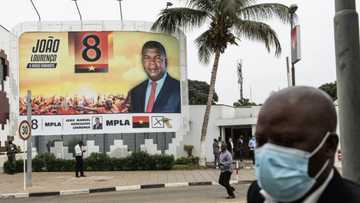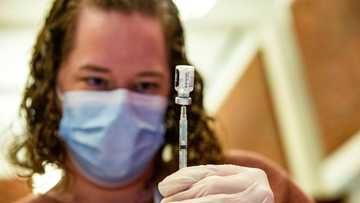'51% of Sokoto Children Not Fully Immunised Against Childhood Diseases', Report Says
- A large number of Nigerian children living in Sokoto state are not fully immunised, 2021 Multiple Indicator Cluster Survey (MICS) and the Immunisation Coverage Survey (NICS) have said
- The report added that Nigeria has made efforts to immunise children in the country with great outcomes in Ebonyi, Enugu and some other states
- Also, while 36 per cent of Nigerian children between ages 12 and 23 months have received all vaccines, 18 per cent did not receive the recommended doses of vaccines
Despite the effort to end death among children through vaccination against the six killer diseases, Sokoto state appears to be lagging behind in the immunisation of children under the age of five.
According to survey findings in the 2021 Multiple Indicator Cluster Survey (MICS) and National Immunisation Coverage Survey (NICS) report, 51 per cent of children in Sokoto state who are between the age of 12 and 23 months did not receive any form of immunisation.
MICS6 is an array of findings on studies made on health, household well-being, education and maternal and child care, water, sanitation and hygiene of Nigerians between 2016 and 2021.
Launched on August 16, the survey was championed by the National Bureau of Statistics (NBS) in collaboration with UNICEF.
The report also said that vaccinations in Enugu stood at one per cent while Ebonyi state is at zero per cent, the smallest portion across states of the country.
This was disclosed at a media dialogue organised by the United Nations Children's Fund (UNICEF) in collaboration with the Child Rights Information Bureau (CRIB) of the Federal Ministry of Information and Culture in Port Harcourt.
PAY ATTENTION: Share your outstanding story with our editors! Please reach us through info@corp.legit.ng!
Claes Johanson, the United Nations Children's Fund (UNICEF) chief of Measurement for Result (M4R) said the smallest proportion of children who did not receive any vaccinations are found in Enugu.
Vaccination is a process whereby a person is made immune or resistant to an infectious disease, typically by the administration of a vaccine.
Children are usually immunised against the killer disease which includes measles, meningitis, pneumonia, tetanus and polio, among others that can be life-threatening.
Nigeria's effort in getting every child fully immunised against killer diseases
However, Johanson noted that although Nigeria has made tremendous progress in some sectors, the is a significant gap in routine immunisation.
In total, Johanson confirmed that findings from the MICS6 show that while 36 per cent of Nigerian children between ages 12 and 23 months have received all vaccines, 18 per cent did not receive the recommended doses of vaccines required to protect them from these life-threatening diseases.
While Enugu sits at one per cent, Ebonyi state is at zero per cent, while the highest percentage can be found in Sokoto at 51 per cent.

Read also
CSOs, NHRC interface over implementation of rights protecting communities from environmental hazards
According to UNICEF's M4R, several factors including religion, and lack of awareness among others that may have contributed to the low vaccine uptake in some states across the country need to be brought to the fore.
He called on the Nigerian media, the government and key stakeholders to continue to work together to ensure the complete vaccination of every Nigerian child.
How we enrol 'drop-out-married' girls into schools in Kano community, father highlights
In other news, parents in Tarda community in Ungogo local government area of Kano state adopted different measures to ensure their girls are not enrolled but stay in school to complete their basic education.
One of such parents is Mustapha Abdullahi Tarda whose focus is on making sure that girls who were married off earlier go back to school.
Also, mothers in the community encourage each other through an association supported by United Nations Children’s Fund and the Foreign, Commonwealth and Development Office.
Education experts reveal why Nigeria is experiencing low learning outcomes
Legit.ng had earlier reported that experts across the country have called for strategic approaches to improving learning outcomes in school children.
The experts warned that 70 per cent of the children who are currently in school are not even learning.
According to them, there is also a need for all stakeholders in education to work towards ensuring teachers' development bearing in mind, the importance of training and retraining school instructors.
Source: Legit.ng




